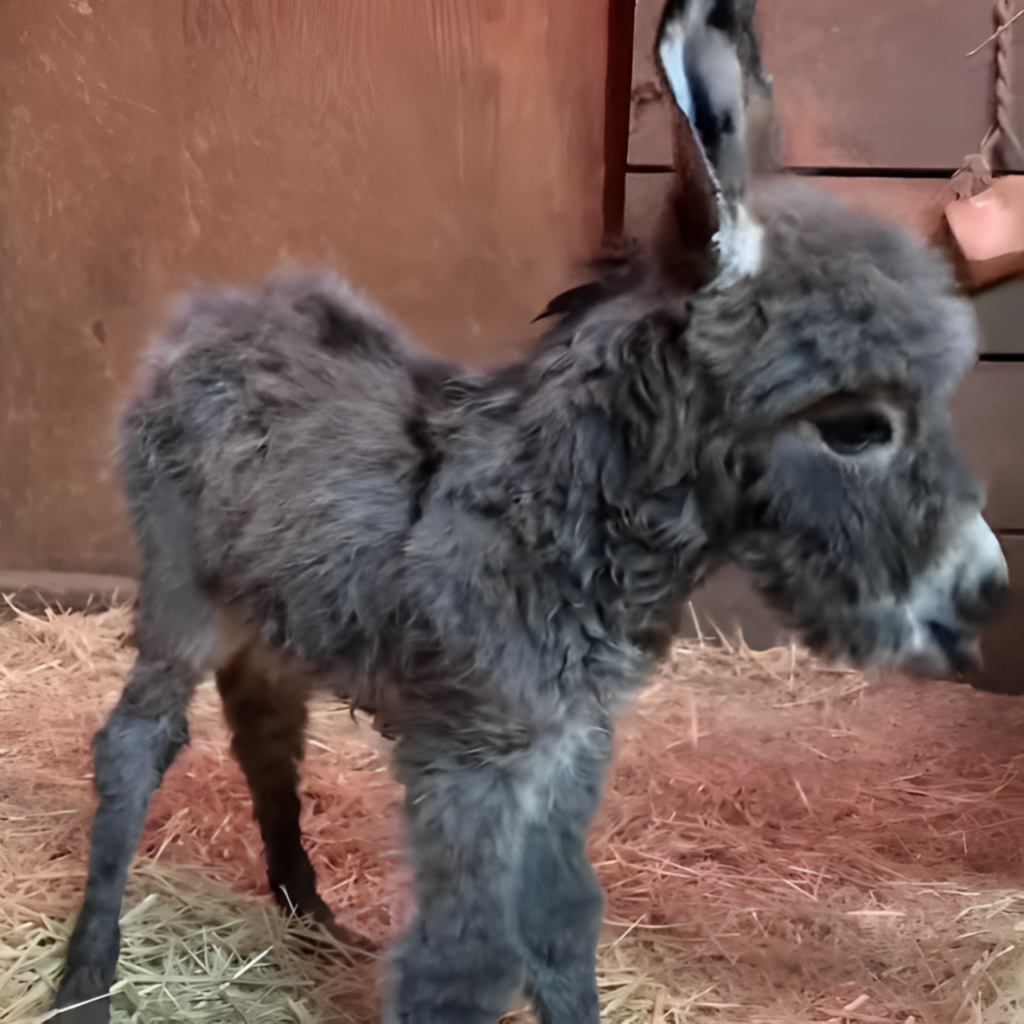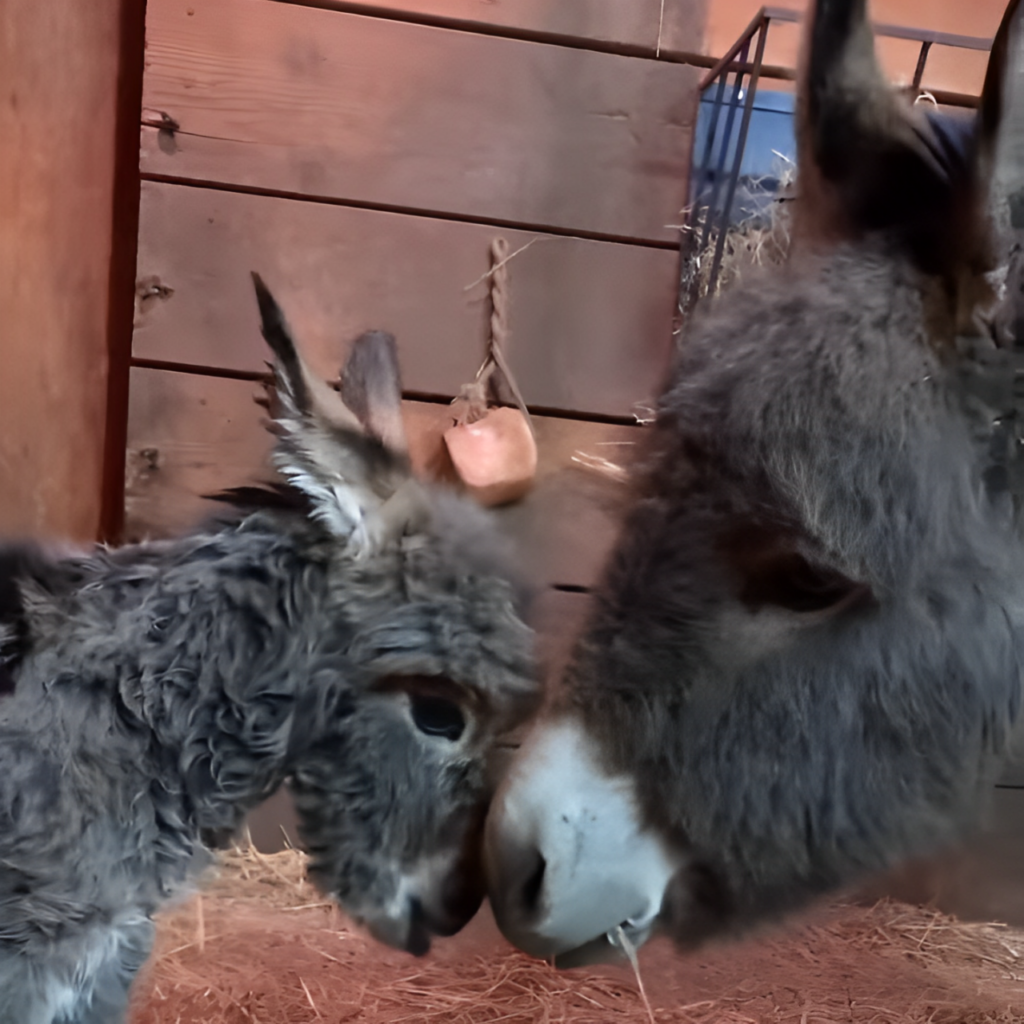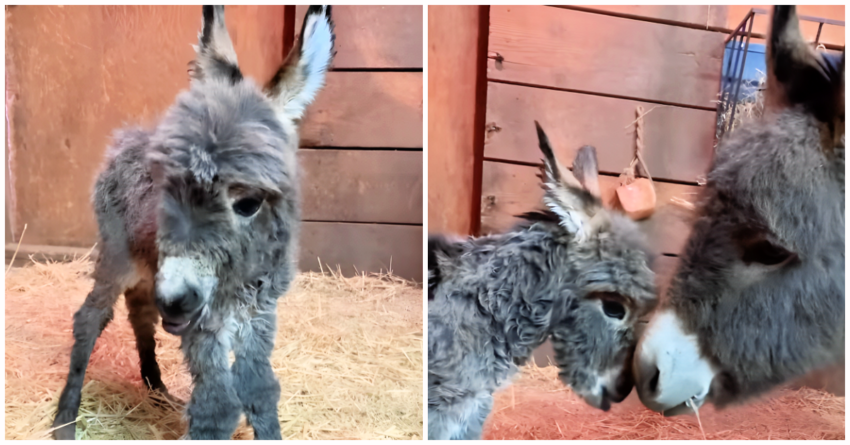The sight of a mother donkey gazing at her newborn with overwhelming affection is a heartwarming scene that encapsulates the universal language of maternal love. This touching moment between the donkey and her foal, a small, fuzzy creature, reminds us of the powerful emotional connections that animals share with their offspring. Baby animals, especially those as endearing as donkey foals, have an innate ability to soften even the hardest hearts. Observing such tender interactions in the animal kingdom not only brightens our day but also deepens our appreciation for the depth of animal emotions.

Caring for a newborn donkey requires specific knowledge and preparation to ensure the health and safety of the foal. The birthing process, though typically swift, demands readiness. It is crucial to provide a warm, clean environment shielded from the elements, such as a loose box previously cleared of any disease threats and equipped with fresh bedding. This setting should be maintained with high hygiene standards, especially during the critical first 72 hours post-birth, to protect the newborn from infections. Such meticulous preparation helps create a safe, nurturing space for the foal to begin its life.

As the foal grows, its need for exercise and sunlight becomes paramount. Unlike human babies, donkey foals require exposure to sunlight to produce vitamin D, vital for healthy bone development, as their mother’s milk is deficient in this nutrient. Ensuring that the foal spends at least three hours daily in the sun not only aids in physical development but also in fostering a vibrant and healthy demeanor. Regular physical activity is equally important as it strengthens the foal’s body and spirit, preparing it for a playful and energetic life.

Donkeys are naturally sociable and affectionate creatures, thriving on interaction either with their human caretakers or animal companions. Their playful nature makes them excellent friends not only for humans but also for other donkeys and even horses. Known for their gentle disposition and the joy they find in engagement, such as being petted or playing with toys, donkeys enrich the lives of those around them. Watching a donkey interact with its environment and companions, one can’t help but be charmed by their friendly antics and consider the joy of having one as a pet. This connection highlights the unique bond between humans and animals, a bond that is based on mutual affection and care.
